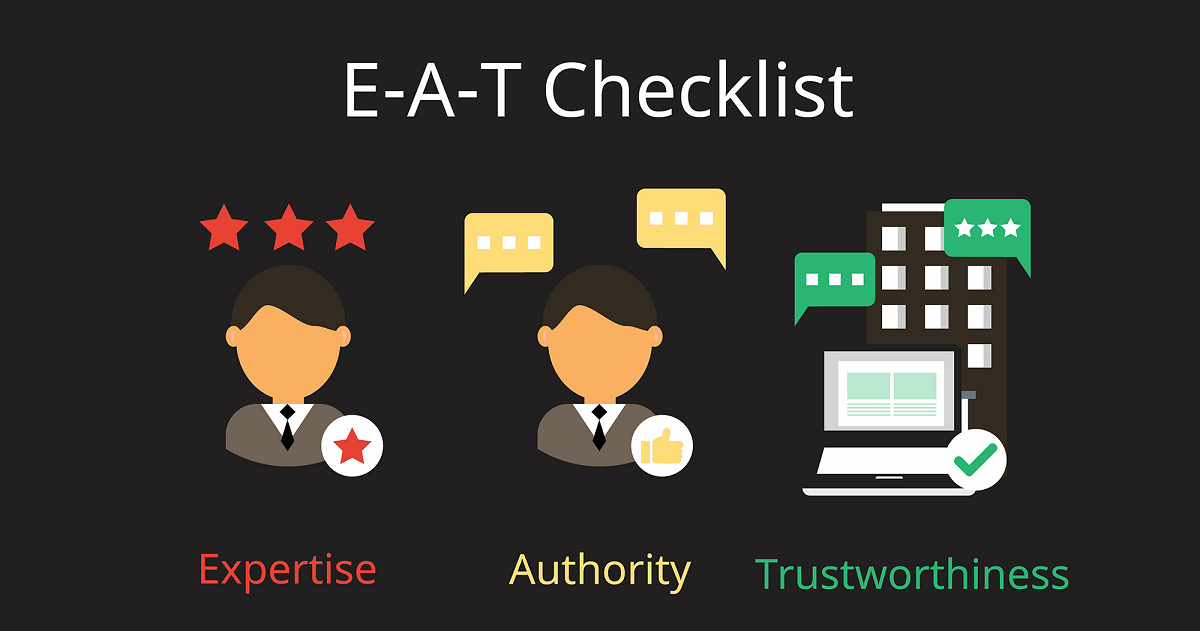BLOG
Local SEO For Healthcare Practices: A Comprehensive Guide

In today's digital age, the internet has become the go-to resource for individuals seeking healthcare services. Whether it's finding a nearby doctor, dentist, or specialist, patients are increasingly relying on online search engines to discover and evaluate healthcare providers. This shift in consumer behavior has made local search engine optimization (SEO) a critical strategy for healthcare practices looking to attract and retain patients in their local area.
Local SEO for healthcare practices involves optimizing your online presence to appear prominently in local search results when potential patients search for relevant services. This comprehensive guide will walk you through the key strategies and best practices to enhance your practice's visibility in local search results and attract more patients.
One of the first steps in local SEO for healthcare practices is to claim and optimize your Google My Business (GMB) listing. This free tool from Google allows you to manage how your practice appears in Google Search and Maps, including your business hours, contact information, and customer reviews. Optimizing your GMB profile can significantly improve your practice's visibility in local search results and make it easier for patients to find and contact you.
Additionally, local keyword research plays a crucial role in local SEO for healthcare practices. By identifying and targeting relevant local keywords, you can ensure that your practice appears in search results when potential patients are looking for healthcare services in your area. This guide will provide you with the strategies and tools you need to conduct effective local keyword research for your practice.
Understanding Local SEO
Understanding local SEO is essential for any business that operates within a specific geographic area and serves a local clientele. Unlike traditional SEO, which focuses on improving a website's visibility on a global scale, local SEO aims to optimize a website for local search queries, making it more likely to appear in search results when users are looking for businesses or services in their area.
Local SEO involves a variety of strategies and tactics aimed at improving a website's ranking in local search results. This includes optimizing the website's content and meta tags with local keywords, claiming and optimizing Google My Business (GMB) listing, building local citations, and earning backlinks from local websites.
One of the key aspects of local SEO is the use of location-based keywords. These are terms that include the name of the city, town, or region that the business serves. For example, a dentist in Sacramento would want to optimize their website for keywords like "Sacramento dentist" or "dentist near me" to attract local customers.
Another important aspect of local SEO is the use of Google My Business. A properly optimized GMB listing can greatly improve a business's visibility in local search results. This includes providing accurate business information, such as address, phone number, and business hours, as well as uploading high-quality images and encouraging customers to leave reviews.
Overall, understanding local SEO is crucial for businesses looking to attract local customers and improve their online visibility. By implementing the right strategies and tactics, businesses can increase their chances of appearing in local search results and attracting more customers from their local area.
Benefits Of Local SEO For Healthcare Practices
Local SEO offers numerous benefits for healthcare practices, helping them connect with local patients and improve their online visibility. Here are some key advantages:
- Increased Visibility to Local Patients: Local SEO strategies help healthcare practices appear in local search results when potential patients are looking for services in their area. This increased visibility can lead to more website traffic and inquiries from local patients.
- Higher Rankings in Local Search Results: By optimizing their website and Google My Business (GMB) listing for local keywords, healthcare practices can improve their rankings in local search results. This can help them stand out from competitors and attract more local patients.
- Enhanced Trust and Credibility: Appearing in local search results can help healthcare practices build trust and credibility with local patients. Patients are more likely to trust a practice that appears at the top of search results and has positive reviews from other local patients.
- Better Targeting of Local Audience: Local SEO allows healthcare practices to target their marketing efforts towards a local audience. This can help them reach patients who are more likely to convert and book appointments.
- Cost-Effective Marketing Solution: Compared to traditional forms of advertising, such as print or TV ads, local SEO is a cost-effective marketing solution for healthcare practices. It allows them to reach a targeted audience without spending a lot of money.
Overall, local SEO can have a significant impact on the success of a healthcare practice, helping them attract more local patients and grow their business.
Technical SEO For Local Healthcare Practices
Technical SEO plays a crucial role in improving a healthcare practice's visibility in local search results. Here are some key technical SEO strategies specifically tailored for local healthcare practices:
- Mobile Optimization: Ensure your website is mobile-friendly, as a significant portion of local searches are performed on mobile devices. Use responsive design to provide a seamless user experience across all devices.
- Page Speed Optimization: Improve your website's loading speed, as faster-loading pages tend to rank higher in search results. Compress images, minimize code, and leverage browser caching to speed up your site.
- Local Schema Markup: Implement local schema markup on your website to provide search engines with specific information about your practice, such as your address, phone number, business hours, and services offered. This helps search engines understand your content better and can lead to higher rankings in local search results.
- Optimized URL Structure: Use SEO-friendly URLs that include relevant keywords and location information. For example, instead of using a generic URL like "www.example.com/service1," use "www.example.com/location/service1" to target local keywords.
- Secure Website: Ensure your website is secure by using HTTPS encryption. A secure website not only provides a better user experience but also gives a slight ranking boost in search results.
- Local Listings and Citations: Ensure your practice's name, address, and phone number (NAP) are consistent across all online directories, including Google My Business, Yelp, and Healthgrades. Inconsistent NAP information can confuse search engines and negatively impact your local search rankings.
- Google My Business Optimization: Claim and optimize your Google My Business listing. Provide accurate and up-to-date information about your practice, including your address, phone number, business hours, and services offered. Encourage patients to leave reviews, as positive reviews can improve your local search visibility.
By implementing these technical SEO strategies, local healthcare practices can improve their visibility in local search results and attract more patients from their target area.
Local Link Building Strategies
Local link building is crucial for healthcare practices to improve their local search rankings and attract more patients from the area. Here are some effective strategies for building local links:
- Local Directories: Submit your practice to local business directories such as Yelp, Yellow Pages, and local chamber of commerce websites. These directories provide valuable backlinks and improve your visibility in local search results.
- Local Publications and Blogs: Reach out to local publications, bloggers, and news websites to pitch healthcare-related topics or share patient success stories. Getting featured in local media can earn you high-quality backlinks.
- Local Sponsorships and Partnerships: Sponsor local events, sports teams, or community organizations. This not only helps you give back to the community but also earns you backlinks from event websites or partner organizations.
- Local Citations: Ensure that your practice's name, address, and phone number (NAP) are consistent across all online platforms and local directories. This consistency improves your credibility and helps with local SEO.
- Local Networking: Attend local networking events, conferences, and seminars to connect with other businesses and professionals in your area. Building relationships can lead to link-building opportunities.
- Local Reviews and Testimonials: Encourage satisfied patients to leave reviews and testimonials on your website, Google My Business, and other review platforms. Positive reviews can attract more patients and improve your local search rankings.
- Local Social Media Groups: Join local social media groups and engage with the community. Share helpful healthcare tips, answer questions, and promote your practice. This can lead to natural link-building opportunities as members share your content.
- Local Resource Pages: Look for local websites that have resource pages related to healthcare or your specific medical field. Reach out to them and suggest adding your practice as a valuable resource, earning you a relevant backlink.
By implementing these local link-building strategies, healthcare practices can improve their online visibility, attract more local patients, and enhance their overall SEO efforts.
Monitoring And Measuring Local SEO Performance
Monitoring and measuring local SEO performance is crucial for understanding the effectiveness of your efforts and identifying areas for improvement. Here are the key aspects to consider:
- Tracking Local Keyword Rankings: Use SEO tools to track the rankings of your targeted local keywords. Monitor changes over time to see if your optimization efforts are working.
- Analyzing Organic Traffic: Use Google Analytics or other web analytics tools to track organic traffic to your website from local search queries. Look for trends and changes in traffic patterns.
- Monitoring Google My Business Insights: Check your GMB dashboard regularly to see how customers are finding your business. Pay attention to metrics like views, clicks, and actions taken.
- Tracking Local Citations: Monitor the number and quality of your local citations (mentions of your business name, address, and phone number on other websites). Tools like Moz Local or BrightLocal can help with this.
- Reviewing Online Reviews: Keep track of customer reviews on Google, Yelp, and other review sites. Respond to reviews and use feedback to improve your services and reputation.
- Using Google Search Console: Monitor your website's performance in Google search results using Google Search Console. Look for any issues that could be affecting your local SEO.
- Utilizing Local SEO Tools: Consider using local SEO tools like SEMrush, Ahrefs, or Whitespark to get more insights into your local search performance and identify areas for improvement.
- Setting Up Custom Reports: Create custom reports to track key local SEO metrics over time. This can help you visualize your progress and make informed decisions about your local SEO strategy.
By regularly monitoring and measuring these aspects of your local SEO performance, you can gain valuable insights into how well your website is performing in local search results and make adjustments to improve your visibility and attract more local customers.
In conclusion, local SEO is a powerful strategy for healthcare practices looking to attract more local patients and improve their online visibility. By implementing the strategies outlined in this guide, healthcare practices can increase their rankings in local search results, drive more traffic to their website, and ultimately attract more patients from their local area.
However, local SEO is not a one-time effort; it requires ongoing monitoring and optimization to maintain and improve results over time. By regularly tracking key metrics such as local keyword rankings, organic traffic, Google My Business insights, and online reviews, healthcare practices can ensure that their local SEO efforts are paying off and make adjustments as needed.
In addition to monitoring performance, healthcare practices should also focus on providing excellent patient care and service, as positive reviews and word-of-mouth referrals can greatly impact their online reputation and search rankings.
As a call to action, I encourage healthcare practices to start implementing the strategies outlined in this guide to improve their local SEO and attract more local patients. By taking action today, healthcare practices can position themselves for success in their local market and stand out from the competition.











